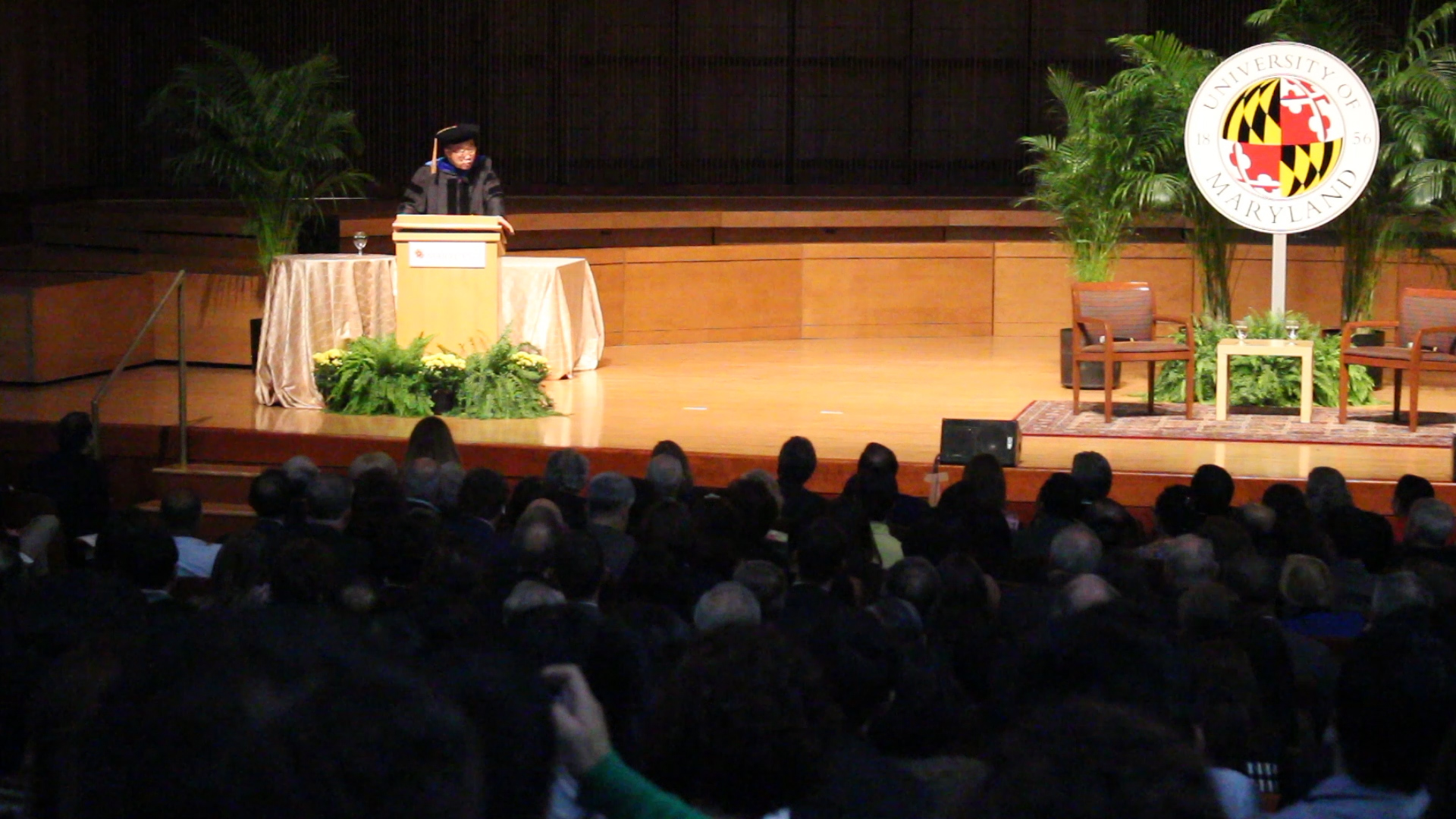When United Nations Secretary-General Ban Ki-moon was 18, he visited the United States and met with President John F. Kennedy at a student conference. Kennedy told Ban and about 120 other students, “The national powers are not that important. What is important is that … you are ready to lend helping hands to people who need them.”
That moment in 1962, Ban said, inspired him to think about what he could do to best serve his country. He decided that serving as a government official, particularly a diplomat, would be the best way to contribute.
Now, just three months from the end of his near decade-long tenure as U.N. Secretary General, Ban came to speak to a full Dekelboum Concert Hall at the Clarice Smith Performing Arts Center about the “Do Good Generation” on Friday.
After Ban co-hosted the global climate summit, Climate Action 2016: Catalyzing a Sustainable Future, with the University of Maryland in May, Robert Orr, dean of the public policy school and a special advisor to the Secretary-General on climate change, invited Ban back to this university to speak.
Ban discussed climate change, the international refugee crisis, promoting peace and other topics before accepting questions from the audience. Ban emphasized that college students can play a large role in solving these and other world issues.
As Ban is nearing the end of his term, he has received invitations from all over the world, Orr said, to come and reflect about his experience at helm of global politics and diplomacy, having accomplished “a great deal” over the last decade.
“The opportunity of having the Secretary-General here talking to youth about their role in solving global problems is very special for our community,” said Orr. “We are obviously doing a lot of good … in our local area and in our state but we want … to also have an impact globally and there’s no better person than Ban Ki-Moon … to dialogue with us about what doing good internationally looks like today.”
Before Ban’s speech, university President Wallace Loh awarded Ban an honorary doctoral degree in public service. After receiving his honorary degree, Ban declared himself a Terp.
“Like your mascot, I spent a lot of time up to my neck in sticky situations,” he said. “Unlike your mascot, rubbing my nose will not bring you good luck.”
Ban’s visit also ties in well with the recently launched Do Good Initiative on the campus, Orr said. The Do Good Initiative is a $75 million effort to support student philanthropy and work in social change through expanded curricula, extracurricular activities, additional resources and a new campus facility.
“The launch of the Do-Good campus just two, three weeks ago certainly reached [Ban’s] radar screen and he was very excited to see that our campus is mobilizing,” Orr said. “I think he’s attracted to what’s happening from climate change and other big issues, but also that we’re organizing to educate our students to not only to do well but also do good.”
Ban said May’s climate summit at this university has helped “to accelerate progress on the ground.” He also tied climate change to the international refugee crisis. Globally, 65 million people have been displaced from their homes as of 2015, the highest number of people displaced since the end of World War II, Ban said. The United Nations convened for the first time in its 71-year history to discuss the global movement of migrants and refugees in mid-September, he added.
“Climate change is one of the reasons why [their] living conditions are deteriorating,” he said. “… Let us build bridges of mutual understand rather than erecting walls and barriers.”
Senior Maya Spaur, director of the Student Government Association’s Sustainability Committee, said she was pleased Ban dedicated so much time to climate change.
Spaur, a government and politics and environmental science and technology major, hopes to work for the U.N.’s environmental program and has always been impressed by Ban’s leadership on climate change, she said.
“I thought it was going to be more focused on how we can invest in philanthropic human rights oriented ways,” Spaur said. “This was … a surprise for me to hear to much about climate change.”
The event concluded with questions and answers. Orr began by asking Ban about effective leadership.
Ban said although everyone has a different style of leadership, it is important to lead by example.
“Sometimes you have to do much more than your staff,” he said. “If they work eight hours, sometimes you have to work nine or 10 hours.”
Orr didn’t believe this was accurate.
“The UN I remember, we worked 15 hours and you worked 20,” he said.



